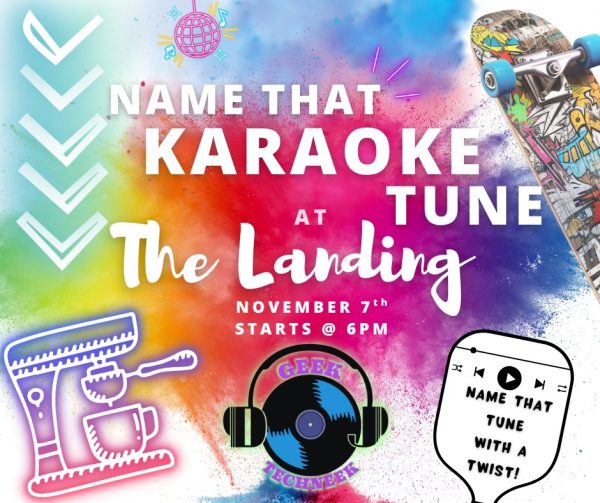$1.9 Trillion Stimulus Bill Signed off by President Biden
What’s Included in the 2021 Stimulus Bill?
As the economic impact of the COVID-19 pandemic continues to ravage the United States, President Joe Biden’s economic relief bill aims to help the nation recover and move forward through direct payments, funding for education, and money allocation towards vaccine distribution throughout the nation. As of the writing of this article, the bill has just been signed off on by President Biden after months of debate since it was originally introduced in mid-January.
One of the most contentious details of this bill is the direct payments of $1400 to Americans. Throughout the campaign season, President Biden spoke extensively about $2000 direct payments, and the president’s justification for this is that if you add the $600 Americans received at the end of 2020 to the payment of this bill, it equals out to $2000. While this lowered amount did receive some push-back from progressives, the bill did proceed through Congress after being voted on by the House on Wednesday, March 10th, 2021.
Another aspect of the bill that differs from past COVID relief bills is that for the first time, adult dependents will be eligible for direct payments. This includes elderly citizens and college students who are claimed by their legal guardians on their taxes. The bill also extends the weekly $300 unemployment benefits that were set to expire soon under the most recent relief bill.
Why did the Minimum Wage Section of the Bill get Removed?
While many of President Biden’s proposals did remain in the bill during its time in Congress, one major feature that did not pass through the Senate was an amendment to add an increase in the federal minimum wage. The provision would slowly raise the minimum wage up to $15 an hour by 2025. This was one of President Biden’s major campaign promises and the Senate failing to pass the increase will most likely reflect negatively on Democrats during the 2022 midterm elections, giving the popularity of minimum wage increases throughout the nation. The amendment was voted down not only by Republicans but also eight Democrats, including Senator Joe Manchin from West Virginia and Kyrsten Sinema from Arizona.
The main reason these moderate Democrat senators cited for voting down the amendment was that the minimum wage increase should be discussed separately from the relief bill, given the importance of both. Senator Sinema commented on the topic in an official statement, “Senators in both parties have shown support for raising the federal minimum wage, and the Senate should hold an open debate and amendment process on raising the minimum wage, separate from the Covid-focused reconciliation bill.” It is unclear when and if this debate will occur anytime in the near future, but for the time being, the minimum wage increase has been removed from the COVID relief bill.
Who Voted for/against the Bill?
When the relief bill was voted on in both the House and the Senate, the vote was largely performed along party lines, with every Republican Senator and Representative voting against the bill, citing its cost. Of course, with Democrats controlling both the House and the Senate, voting along party lines still allowed the bill to pass through both chambers of Congress.
Despite the partisan nature of this legislation, Republican Senator Roger Wicker from Missouri has been facing media backlash since Wednesday evening, when he published a tweet regarding a provision in the bill that aims to provide the restaurant and bar industry with $28.6 billion in aid. The amendment was proposed by Senator Wicker and Senator Sinema, but despite it being approved, he still voted against the relief bill as a whole. This tweet received backlash as some saw it as Senator Wicker taking credit for the amendment even though he voted against the bill. Many political pundits predict that this relief bill will serve as a major campaign issue during the 2022 midterm elections, as Democrats attempt to capitalize on Republican lawmakers unanimously voting against the bill.
Do Americans Support the Bill?
According to the Pew Research Center, the majority of Americans support the COVID relief bill. 70% of American adults support the bill, with 41% of Republicans supporting the bill and 94% of Democrats favoring the bill. In addition, 57% of American adults agreed that the Biden administration made a good faith effort to work with Republican lawmakers throughout the development of the bill. Low-income Americans also seem to favor the bill more than middle-income and upper-income Americans.
When Will Americans be Receiving their Stimulus Checks?
White House Secretary Jen Psaki stated on Thursday said that some Americans may begin receiving their stimulus packages as soon as March 13th or 14th, just a few days after the bill was originally signed into law on March 11th. She also stated that the IRS is aiming to work more efficiently distributing checks, building on what they’ve learned through the prior relief bills. While the first stimulus checks took around two weeks to arrive, the second round began arriving as quickly as two days after the bill was signed into effect. Some Americans are worried that the added stress of tax season will slow down the process, though no official word on this has been released.
Americans that have filed their taxes for 2020 will have their eligibility determined by those, but Americans whose 2019 tax returns are all their most recent can still receive stimulus checks, and eligibility will be based on 2019 taxes.
President Biden Begins Pushing Bill towards American People
In one of President Biden’s first live appearances since his inauguration, he began promoting the relief bill to the American people. Biden’s speech was somber, but maintained an optimistic tone, urging states to make COVID vaccines available to all American adults by May 1st. He also stated that he hoped to allow gatherings by the Fourth of July in order to celebrate the nation’s independence from the pandemic.
In order to achieve normalcy by summer, President Biden stated that Americans would have to continue wearing masks, social distance, and agree to be vaccinated once vaccines are available to them. President Biden also talked about the way in which his presidency will be viewed, which he stated will be heavily influenced by the way in which his administration handles the pandemic and vaccine rollout.
The next few months will be extremely important for the future of the nation, as the end of the pandemic draws closer and vaccine rollout expands throughout the country, but this week’s stimulus bill will hopefully work to help strengthen the economy of the nation, while also directly helping Americans who have been negatively affected by the pandemic. The passing of this bill without any Republican support will also likely bolster Democrat action in Congress as they push for other big-ticket items on the Democratic agenda such as healthcare and law enforcement reforms.

Evan Green is an up-and-coming writer from Portsmouth, Ohio dedicated to providing his readers with accurate and unbiased news on a large variety of subjects....







